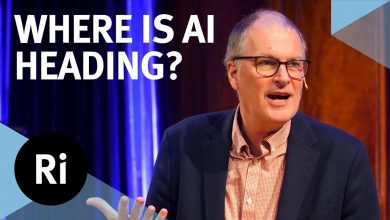What’s Wrong with LLMs and What We Should Be Building Instead – Tom Dietterich
Summary of the talk given by Tom Dietterich on the problems with LLMs (Large Language Models) and the alternative solutions that we should be building instead.
 Thomas G. Dietterich is emeritus professor of computer science at Oregon State University and one of the pioneers of the field of machine learning.
Thomas G. Dietterich is emeritus professor of computer science at Oregon State University and one of the pioneers of the field of machine learning.
He served as executive editor of the journal called Machine Learning (1992–98) and helped co-found the Journal of Machine Learning Research.
In this talk he sheds light on the limitations and potential dangers of relying solely on LLMs.
Problems with LLMs
LLMs have gained significant attention and popularity due to their ability to generate human-like text, and provide a pre-trained foundation for training many interesting AI systems.
However, they have many shortcomings. They are expensive to train and to update, their non-linguistic knowledge is poor, they make false and self-contradictory statements, and these statements can be socially and ethically inappropriate. Dietterich highlights several concerns with their usage:
- Lack of interpretability: LLMs are often considered black boxes, making it difficult to understand how they arrive at their conclusions.
- Ethical concerns: LLMs can perpetuate biases present in the training data, leading to discriminatory outputs.
- Overreliance on pre-training: LLMs heavily rely on large-scale pre-training, which can limit their adaptability to specific tasks.
- Poor generalization: LLMs may struggle to generalize well to new situations or domains that differ significantly from their training data.
- Lack of accountability: LLMs can generate false or misleading information without any mechanism for accountability.
Alternative Solutions
Dietterich suggests that instead of solely relying on LLMs, we should focus on building alternative solutions that address the aforementioned problems. He proposes the following approaches:
- Transparent and interpretable models: Developing models that provide explanations for their decisions can help improve trust and understanding. By incorporating interpretability into the design, we can gain insights into how the model arrives at its conclusions.
- Ethical considerations and bias mitigation: Addressing the ethical concerns associated with LLMs requires proactive measures to identify and mitigate biases in the training data. This involves careful curation of diverse datasets and the development of fairness-aware algorithms.
- Task-specific fine-tuning: Instead of relying solely on pre-training, Dietterich suggests fine-tuning models on specific tasks. This allows for better adaptation to the target domain and improves performance on specific objectives.
- Hybrid models and human-in-the-loop systems: Combining the strengths of LLMs with human expertise can lead to more robust and reliable systems. Hybrid models that leverage human input can help overcome the limitations of LLMs and ensure better outcomes.
Conclusion
Tom Dietterich’s talk highlights the problems associated with LLMs and emphasizes the need for alternative solutions that address these concerns.
By focusing on transparency, ethics, task-specific fine-tuning, and hybrid models, we can build more reliable and accountable systems that go beyond the limitations of LLMs. It is crucial to consider the potential risks and actively work towards developing responsible and trustworthy AI technologies.



